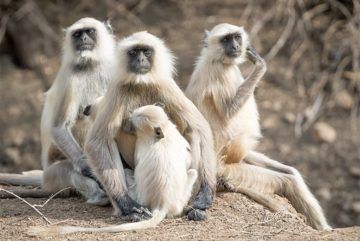David Barash in Nautilus:
 Know thyself” is a terrific idea. It’s one of the Delphic maxims—alongside “certainty brings insanity” and “nothing to excess”—that you can find inscribed on the Temple of Apollo. Such knowing could well begin with an evolutionary conundrum: menopause. It’s as if natural selection took “nothing to excess” strangely to heart in the realm of human reproduction. Very few mammals—excepting short-finned pilot whales and possibly Asian elephants—experience anything like a prolonged life stage during which they are alive yet nonbreeding. So long as they draw breath, our fellow mammals release eggs. But not Homo sapiens.
Know thyself” is a terrific idea. It’s one of the Delphic maxims—alongside “certainty brings insanity” and “nothing to excess”—that you can find inscribed on the Temple of Apollo. Such knowing could well begin with an evolutionary conundrum: menopause. It’s as if natural selection took “nothing to excess” strangely to heart in the realm of human reproduction. Very few mammals—excepting short-finned pilot whales and possibly Asian elephants—experience anything like a prolonged life stage during which they are alive yet nonbreeding. So long as they draw breath, our fellow mammals release eggs. But not Homo sapiens.
Around age 50, women stop ovulating, a biological mystery because reproduction is the sine qua non of evolutionary success, and yet menopause occurs at an age when women often have a few decades of healthy life ahead of them. Men keep producing sperm (albeit fewer and less viable) into their eighth and even ninth decades. For women, it’s not about becoming unable to make eggs, since every girl is born with all that she will ever have, which await maturation and release. The “how” of menopause is well understood; it is brought on by a dramatic reduction in endocrine hormones, notably estrogen.
More here.
